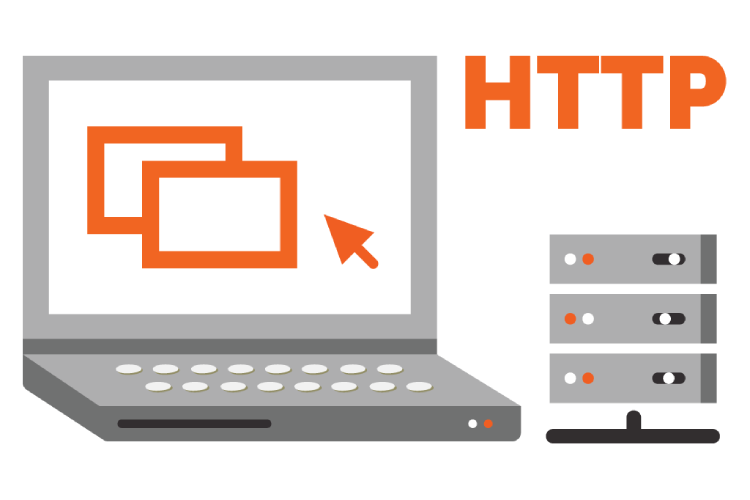In today's digital age, high-concurrency HTTP proxy IPs have become an indispensable tool for many companies and individuals when making large-scale network requests and data crawling. They can not only improve the efficiency and success rate of network requests, but also effectively protect the user's real IP address and enhance data security. This article will explore the many benefits of high-concurrency HTTP proxy IPs to help readers better understand their importance.

1. Improve network request efficiency
1.1 Accelerate request processing
- Load balancing: High-concurrency HTTP proxy IPs use load balancing technology to distribute requests to multiple proxy servers, effectively reducing the load on a single server, thereby increasing the processing speed of requests.
- Parallel processing: Using the parallel processing capabilities of the proxy server, multiple requests can be processed simultaneously, further shortening the request response time.
1.2 Shorten the request path
- Geographic location optimization: High-concurrency HTTP proxy IP service providers usually deploy proxy servers worldwide. Users can select the nearest proxy server based on the geographic location of the target website, thereby shortening the request path and reducing network latency.
- Network optimization: Proxy servers can optimize network requests, such as compressing data, reducing unnecessary request headers, etc., to further speed up requests.
2. Improve request success rate
2.1 Bypass access restrictions
- IP rotation: High-concurrency HTTP proxy IP service providers usually have a large IP pool and can change IP addresses regularly, thereby bypassing the target website's access restrictions on a single IP and improving the request success rate.
- Anonymous access: Accessing through a proxy server can hide the user's real IP address and avoid being identified as a crawler or malicious user by the target website.
2.2 Dealing with anti-crawler mechanisms
- Behavior simulation: High-concurrency HTTP proxy IP service providers can simulate normal user network behaviors, such as randomizing request intervals, using different User-Agents, etc., thereby bypassing the anti-crawler mechanism of the target website.
- Intelligent scheduling: According to the access strategy of the target website, intelligently schedule different proxy IPs for access to reduce the risk of being blocked.
3. Enhance data security
3.1 Protect real IP
- Hide identity: When using high-concurrency HTTP proxy IP, the user's real IP address will be replaced by the IP address of the proxy server, thereby protecting the user's privacy and identity security.
- Prevent tracking: Accessing through a proxy server can prevent the target website or other third-party organizations from tracking the user's real IP address, reducing the risk of being attacked or harassed.
3.2 Data encryption
- HTTPS support: High-concurrency HTTP proxy IPs usually support the HTTPS protocol, which can encrypt the transmitted data to prevent the data from being stolen or tampered with during transmission.
- SSL/TLS certificate: Some high-concurrency HTTP proxy IP service providers also provide SSL/TLS certificates, which further enhances the security of data transmission.
4. Reduce operating costs
4.1 Save bandwidth resources
- Data compression: High-concurrency HTTP proxy IPs can compress the transmitted data, reduce bandwidth usage, and reduce operating costs.
- Cache mechanism: Some proxy servers also have a cache function, which can cache repeatedly requested data, reduce unnecessary network requests, and further save bandwidth resources.
4.2 Improve resource utilization
- Elastic expansion: High-concurrency HTTP proxy IP service providers usually provide elastic expansion services, which can dynamically adjust the number and performance of proxy servers according to the actual needs of users, thereby improving resource utilization.
- Automated management: Through automated management tools, users can easily manage proxy IP allocation, monitoring, and troubleshooting, reducing operation and maintenance costs.
In summary, high-concurrency HTTP proxy IP has significant advantages in improving network request efficiency, increasing request success rate, enhancing data security, and reducing operating costs. For enterprises and individuals who need to make large-scale network requests and data crawling, choosing a suitable high-concurrency HTTP proxy IP service will be a wise decision.
Related Recommendations
- How to use proxy IP for data analysis?
- Multi-scenario proxy IP: Meet your various network needs
- Proxy server ip filtering: an important security measure
- Advantages and limitations of HTTP proxy IP: Everything you need to know
- A tool to solve the problem of anti-association among multiple accounts: static residential IP
- Applications and advantages of dynamic IP proxy API
- IP agents play a major role in promotion and marketing
- Free vs Paid Agents: In-depth Analysis of Hidden Costs and Risks
- IP address blocked? Practical tips for quickly replacing IP
- Dynamic IP vs Static IP: A Guide to Selecting Business Scenarios

